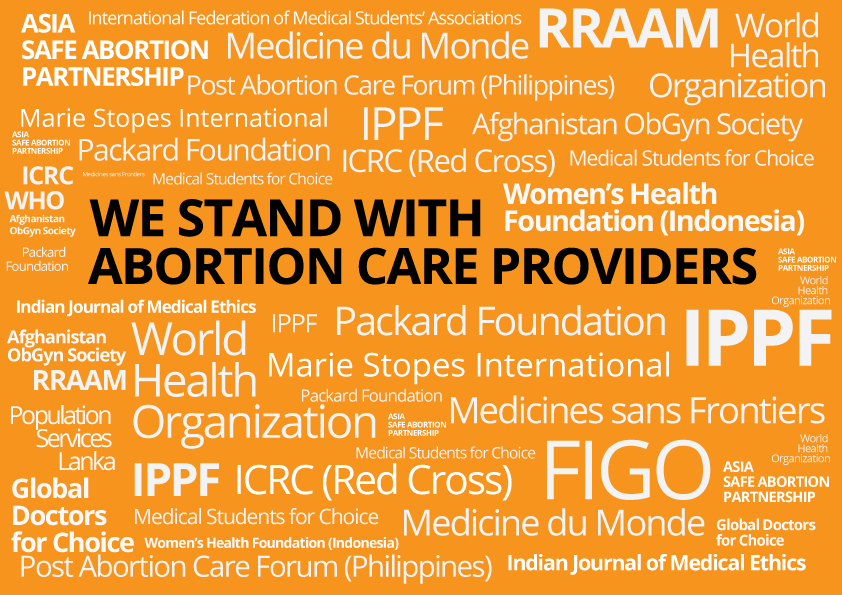Abortion Care Providers SAVE LIVES!
Establishing a Network of Health Care Professionals
Medical and nursing professionals have always been at the forefront of providing care in difficult and dangerous situations and have stepped up on behalf of the vulnerable and marginalized during natural disasters, wars or internal displacement. However, although the medical profession has made progress in recognizing and protecting the human rights of women, not enough has been done by medical professionals to prevent and manage unwanted pregnancies by advocating for and providing access to safe abortion and post-abortion contraception using available platforms, social and professional networks and technology.
The Asia Safe Abortion Partnership coordinated a meeting of representatives of networks of healthcare professionals in the Asia-Pacific region to explore the potential for collaboration and discuss the willingness and possibilities for a greater inclusion of programs for managing unwanted pregnancies within their existing strategies and activities.
Advocating for Safe Abortion: Challenges
Participants shared the challenges that they’ve faced in their journeys of advocating for safe abortion. These included the challenge of networking and aligning with others advocating for safe abortion within a country where abortion is restricted. One participant shared that women’s rights’ activists and Gynaecologists weren’t working together to advocate for safe abortion and therefore were not utilizing each other’s strengths.
Others shared that the attitudes of health care professionals towards women seeking abortions presented a major barrier in access to services. A practitioner providing safe abortion services noted that because only a few clinics openly acknowledge that they provide safe abortion services, it perpetuates the ‘silence’ around the issue and consequently the stigma. Another challenge highlighted was the privatization of health care and the fact that there was so much money to be made from women accessing private services to terminate unwanted pregnancies, that health care practitioners didn’t want to change the status of abortion in their regions. A representative from Global Doctors for Choice noted that conscientious objection which pits the rights of doctors to refuse against the rights of patients to receive services is a significant barrier to health access in some places.
Several participants noted that restrictive laws in their respective countries made it very difficult for them to provide safe abortion services as well as to advocate for women’s rights to safe abortion. Some gave examples of countries, like Vietnam, that seemed to be going backwards and planning to introduce restrictions on the gestational age for conducting abortions. A participant from Lebanon shared that even providing information on abortion was punishable by law. Others shared how religious groups in their countries were perpetuating the stigma around abortion and pressurizing their respective governments to restrict access to services. Countries with restrictive laws consequently don’t have comprehensive sexual education programs for adolescents and limit this group’s access to contraceptives.
Invitees included activists and health care providers from Afghanistan ObGyn Society, FIGO, Global Doctors for Choice, Indian Journal of Medical Ethics, International Federation of Medical Students’ Associations, ICRC (Red Cross), Marie Stopes International, Medicines sans Frontiers, Medicine du Monde, Medical Students for Choice, Ministry of Health (Sri Lanka), Packard Foundation, Population Services Lanka, Post Abortion Care Forum (Philippines), RRAAM, IPPF and Women’s Health Foundation (Indonesia).







